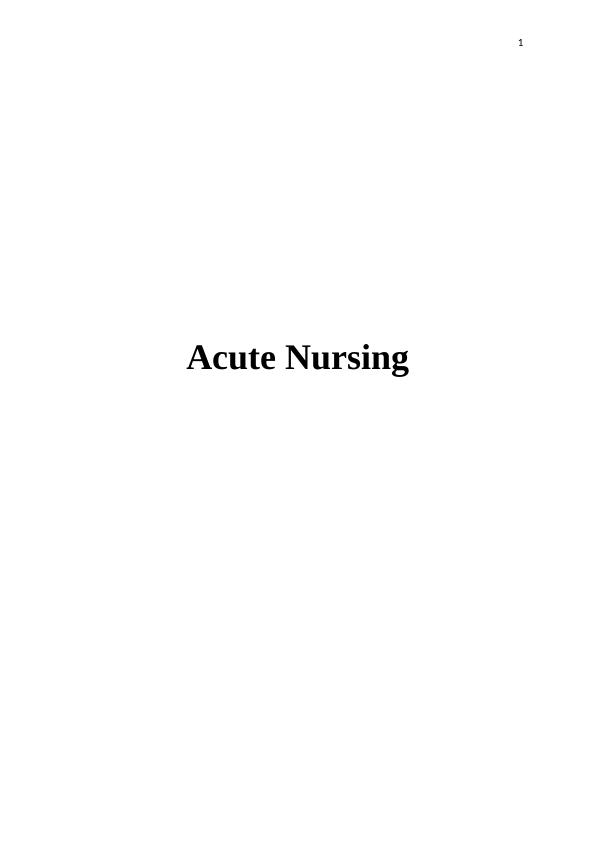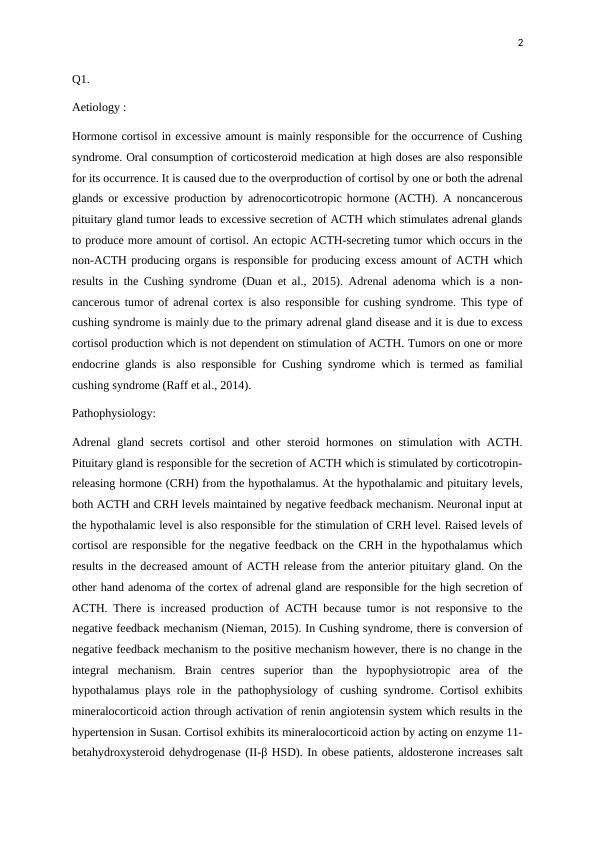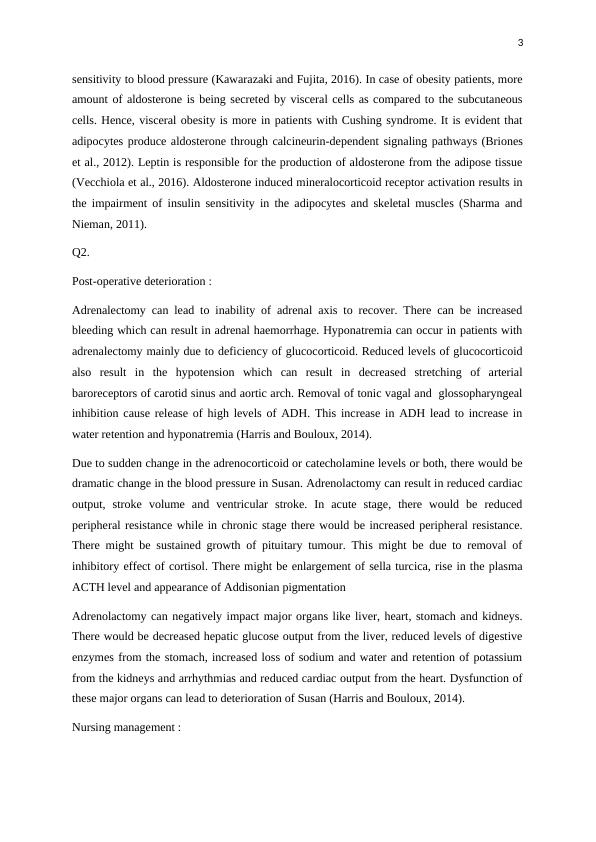Cushing Syndrome: Aetiology, Pathophysiology, Post-operative Deterioration and Nursing Management
Analyzing the case of Susan Summers, a 40-year-old female with type 2 diabetes and Cushing's syndrome, who underwent a laparoscopic right adrenalectomy and is now being cared for on the ward.
6 Pages2274 Words418 Views
Added on 2023-06-14
About This Document
This article discusses the aetiology, pathophysiology, post-operative deterioration and nursing management of Cushing Syndrome. It also highlights the role of care managers, pharmacists and diagnostic test technicians in the care of patients with Cushing Syndrome.
Cushing Syndrome: Aetiology, Pathophysiology, Post-operative Deterioration and Nursing Management
Analyzing the case of Susan Summers, a 40-year-old female with type 2 diabetes and Cushing's syndrome, who underwent a laparoscopic right adrenalectomy and is now being cared for on the ward.
Added on 2023-06-14
ShareRelated Documents
End of preview
Want to access all the pages? Upload your documents or become a member.
KIN 4043 - Therapeutic Case Study
|12
|4547
|42
Adrenalectomy Pathophysiology and Nursing Care
|9
|2558
|61
Assignment on Cushing's Syndrome
|9
|2447
|46
NRSG258 Acute Care Nursing : Assignment
|10
|2874
|30
Cushing Syndrome: A Clinical Case Study on SuSAN
|8
|2389
|317
(Solved) Case Study on Susan
|9
|2622
|66



